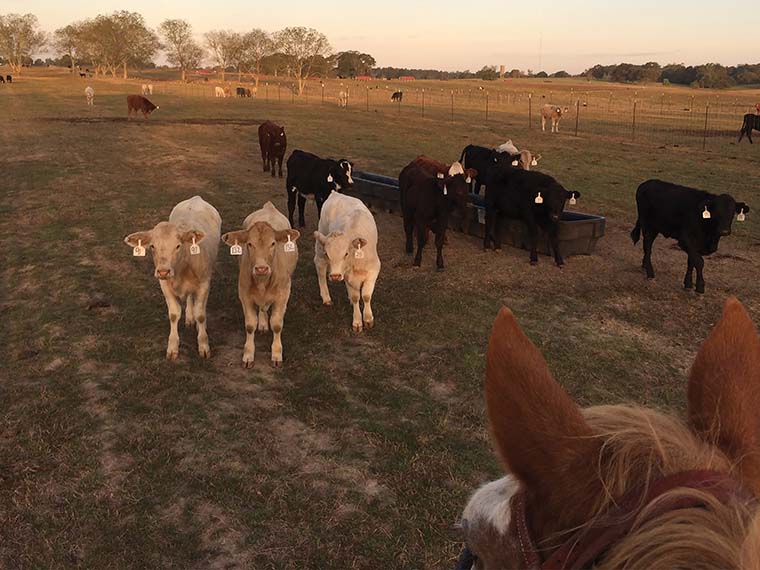The information presented on this page may be dated. It may refer to situations which have changed or people who are no longer affiliated with the university. It is archived as part of Mississippi State University's history.
The White Sands Research Unit, a 440- acre station in Pearl River County, uses its herd of over 150 cows to study the most effective ways to grow beef cattle. Thirty-eight pastures parceled into three-acre plots are planted seasonally with Bermuda grass, bahia grass, crab grass, or rye grass for research.
Before beef-cattle research, the land was used as a tung oil research station. The tung tree (native to China) was introduced to the Gulf Coast in the early 1920s, and was expected to become a booming industry for the area. However, the trees proved difficult to adapt to Mississippi soils. By the 1960s, the industry still had yet to take off, and Hurricane Camille's arrival in 1969 put a final end to the research station's days as an oil operation.
Since then, the branch has come a long way. Today, research projects include the nutrition and management of light-weight stocker cattle, use of supplementation to help cattle better utilize forage, and examination of different varieties of forage to help determine which will best support growing cattle throughout different seasons. All of these projects contribute to growing knowledge about beef cattle production that can be passed on to the producers. The goal is to develop research that will help producers raise quality cattle in the most efficient way possible.
Education is also an element of the station's operations. Undergraduate students occasionally intern with the researchers in order to gain hands-on experience, and the station hosts a field day once a year. Last year, they held the Mississippi Cattlemen's Association Cattlemen's College, which included workshops in forages, animal health, policy updates, and industry issues. This year they plan to host the Pearl River County Extension field day.
As Dr. Daniel Rivera, assistant research and extension professor, put it, "We've really focused on building in the last few years, and created replicated pastures, which greatly improves the statistical power behind our studies. We're in a growing phase, and we hope to continue that into the future."

